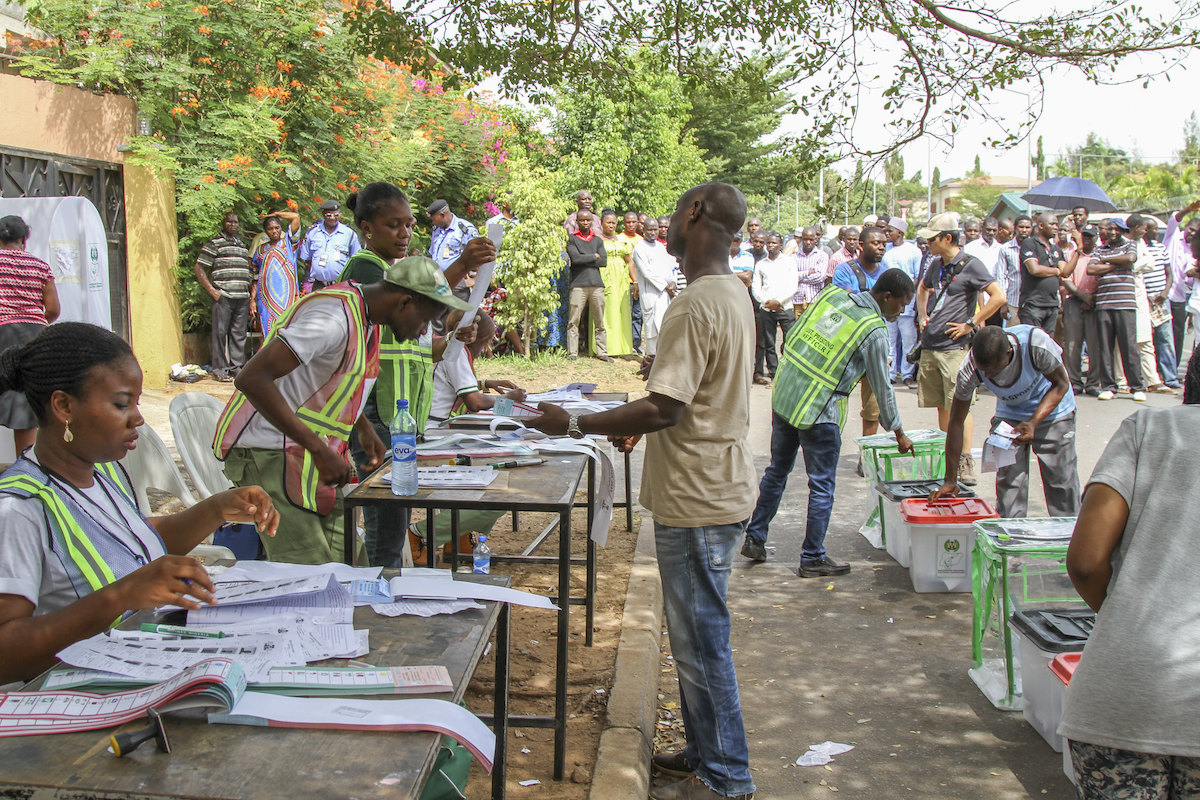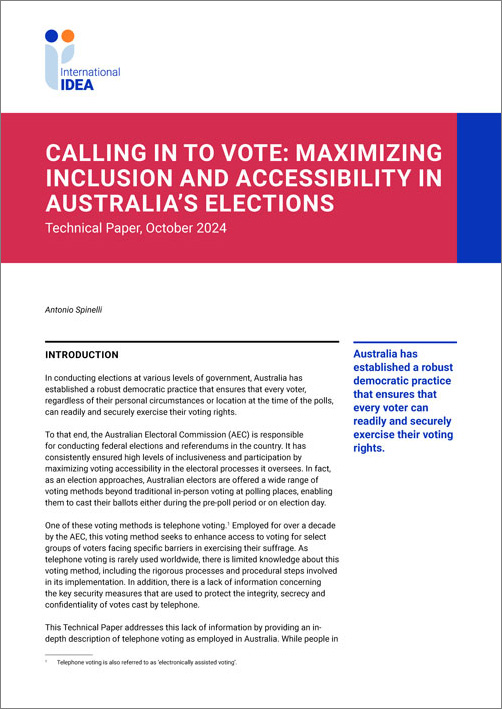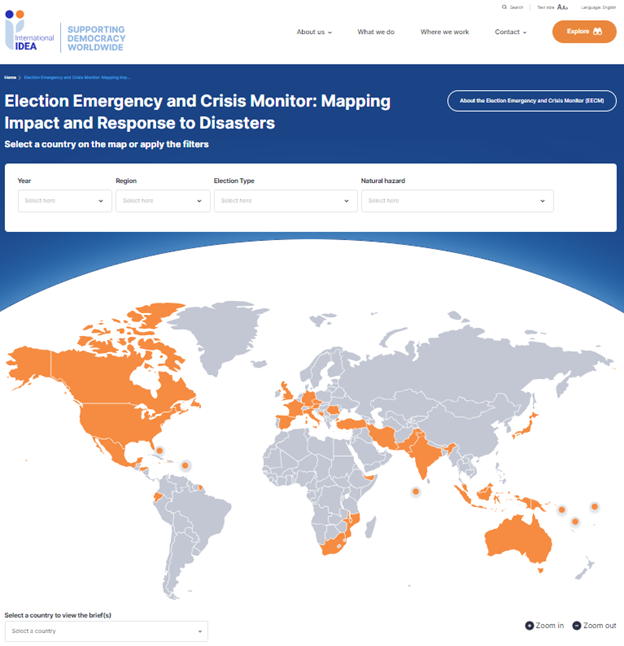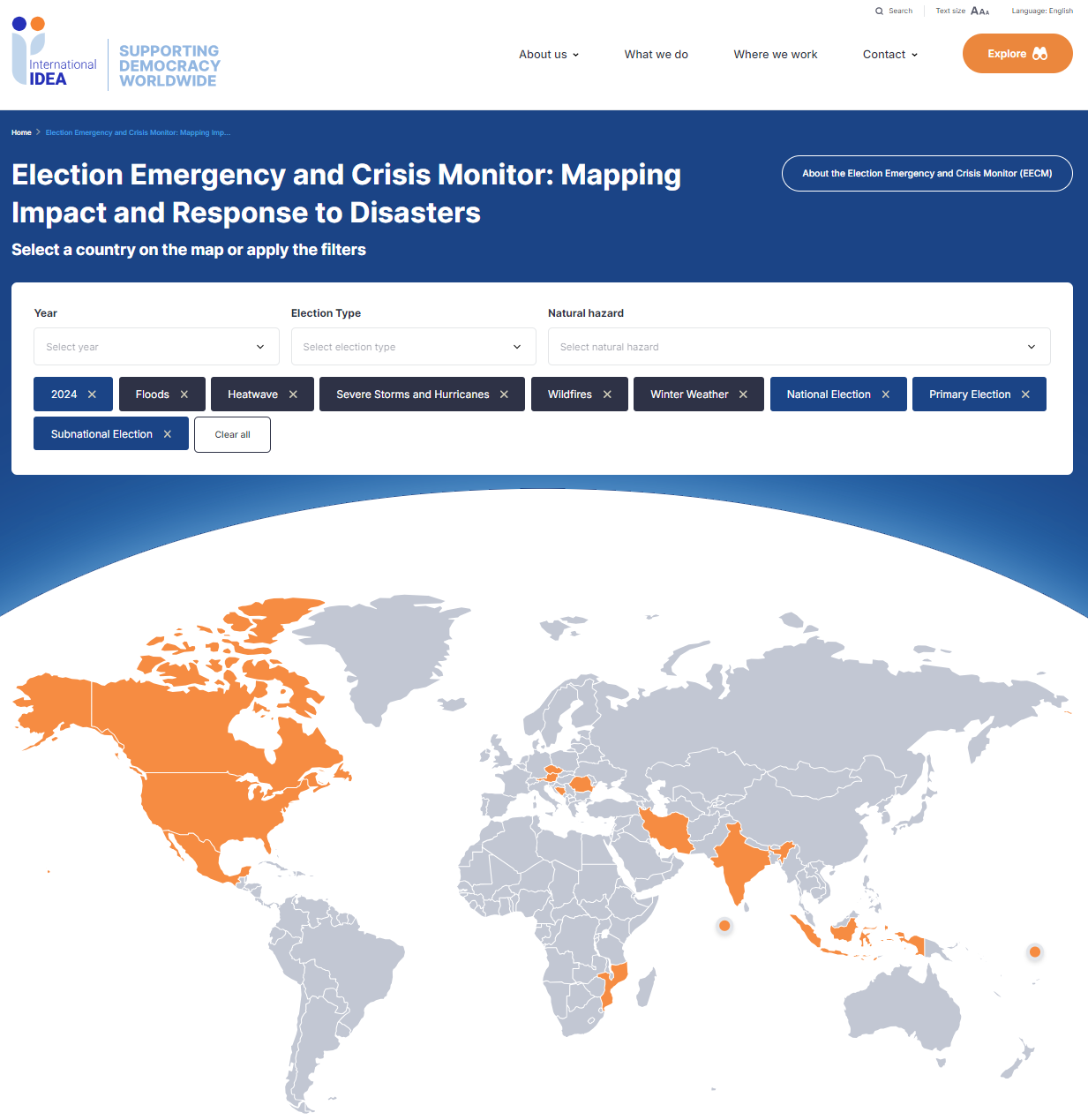Voter Turnout Trends around the World
Voter turnout is an important indicator of how citizens participate in the governance of their country.
Higher voter turnout is often a sign of the vitality of democracy, while lower turnout is usually associated with voter apathy and mistrust of the political process.
This report highlights key trends and recent developments on voter turnout. By reviewing the factors that affect voter turnout, the report provides insights into how to understand complex voter behaviour. In addition, it addresses the critical need to improve how voter turnout statistics are collected, mainly referring to the need for disaggregation of voter turnout data by gender, age and other key characteristics of voters.
Data in this report is extracted from International IDEA’s Voter Turnout database, which was developed in 1999 and has been continually updated. Through the database, International IDEA provide a resource that not only creates awareness about the extent of people’s participation in elections, but also helps electoral stakeholders to make informed policy decisions and programmatic choices to improve the legitimacy of the electoral process.
Details
Author(s)
Related databases & tools
Contents
Preface
Acknowledgements
1. Introduction
2. What is voter turnout?
3. Voter turnout across the globe
4. What factors affect voter turnout?
5. Conclusions
References
Annex 1. Voter turnout in the most recent parliamentary elections as of the end of 2015
Give us feedback
Do you have a question or feedback about this publication? Leave us your feedback, and we’ll get back to you
Send feedbackVoter Turnout Trends around the World
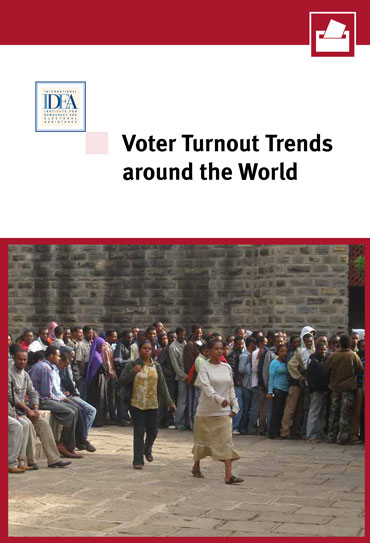
| Total views | 35405 |
|---|---|
| Downloads | 525 |
| Rating |
Authors
Related databases & tools
Give us feedback
Do you have a question or feedback about this publication? Leave us your feedback, and we’ll get back to you
Send feedback